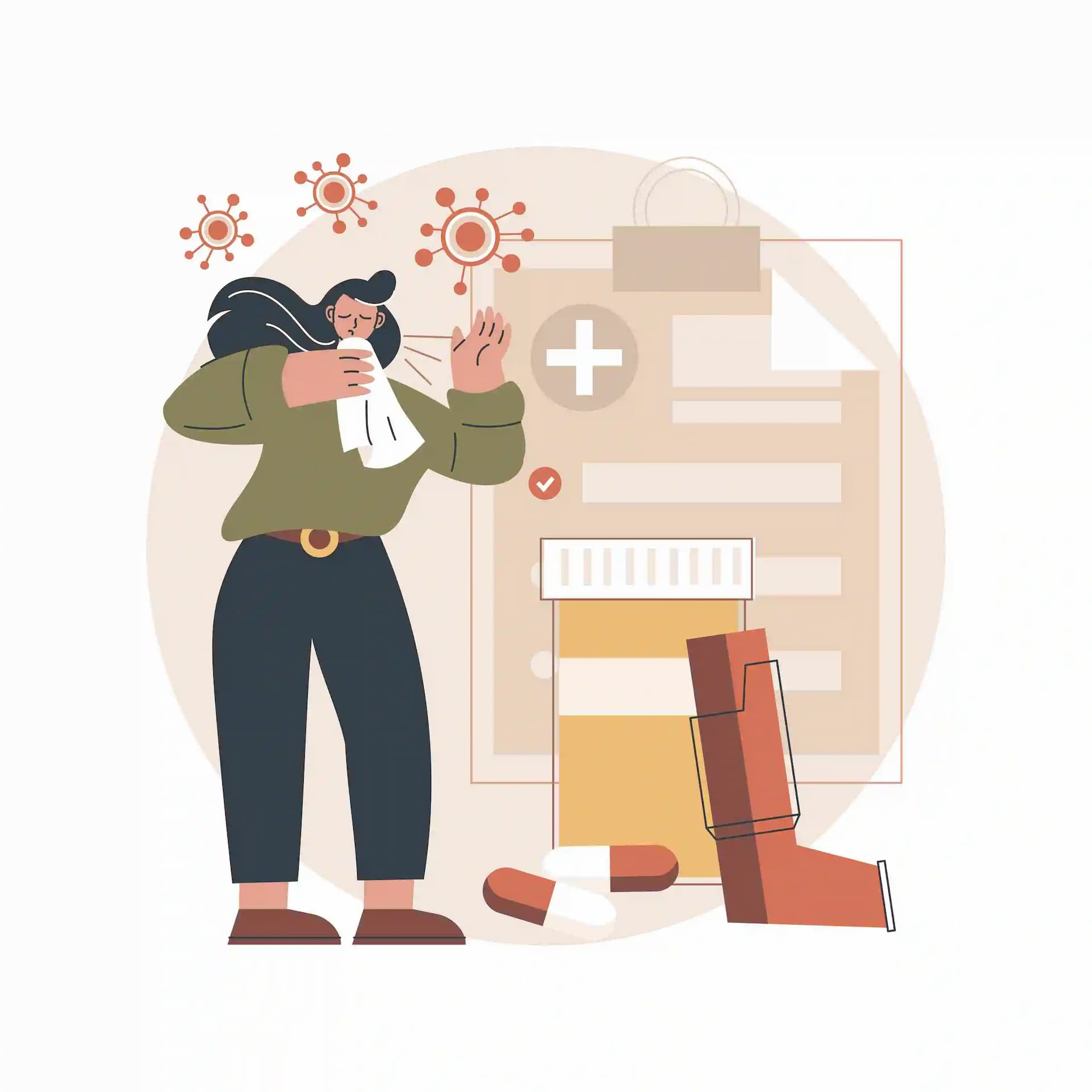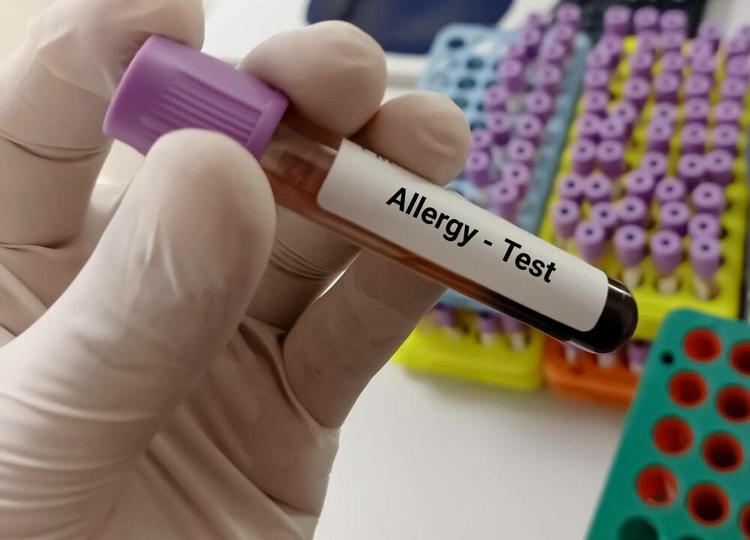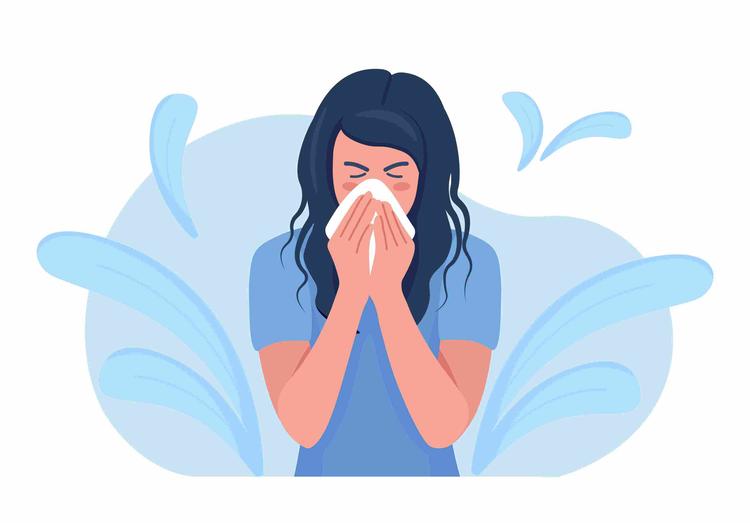What are the Dust Allergy Symptoms and Treatment?

Medically Reviewed By
Dr. Ragiinii Sharma
Written By Ritish Sharma
on Mar 21, 2023
Last Edit Made By Ritish Sharma
on Mar 18, 2024

Allergies are the most common and neglected health issues, affecting millions worldwide. One of the most prevalent allergies is dust allergy, which is surprisingly common and can cause many uncomfortable and dangerous symptoms.
It is caused by the body's reaction to the tiny particles found in dust, such as dust mites, pollen, and animal dander. Dust allergy symptoms can range from mild to severe and significantly affect a person's quality of life.
But luckily, there are treatments available to help relieve the symptoms and reduce your exposure to dust. Let's look at all the dust allergy symptoms you must look out for, their causes, and dust allergy treatment.
We'll also provide tips for reducing your exposure to dust and living with an allergy. With a bit of knowledge and some simple steps, you can learn to manage your dust allergy and enjoy life without the discomfort it can cause.
What is a Dust Allergy?
A dust allergy is common when the body's immune system overreacts to particles found in household dust. These particles may include dust mites (tiny bugs belonging to the spider family), pollen, pet dander, and mold spores.
When a person with a dust allergy inhales these particles, their immune system produces an antibody called Immunoglobulin E (IgE) that triggers a series of reactions, including the release of histamine. This can cause various symptoms, such as sneezing, coughing, itchy eyes, runny nose, and nasal congestion.
In rare cases, dust allergy can also trigger asthma symptoms, such as wheezing and difficulty breathing. While there is no cure for dust allergy, many effective dust allergy treatments can help manage symptoms and improve the quality of life.
How Do You Know If You Have a Dust Allergy?
Dust allergies can be a difficult and uncomfortable condition to deal with. If you suffer from persistent sneezing and coughing, it may be due to a dust allergy.
If you're wondering if you may have a dust allergy, it's essential to understand the common signs and symptoms. These can include:
- Sneezing
- Coughing
- Itchy eyes
- Sore throat
- Runny or stuffy nose
- Watery eyes
- Skin rash
- Chest tightness
- Shortness of breath
Dust allergy symptoms can range from mild annoyance to severe, even life-threatening reactions. In more severe cases, there may also be swelling of the face and throat, difficulty breathing, and a rash or hives.
Common Causes of Dust Allergy
Dust allergies can be a major source of discomfort for many people. Here are some of the most common causes of dust allergies:
- Dust mites: These microscopic organisms feed off dead skin cells and are often found in soft furnishings such as mattresses and carpets.
- Mold: Mold spores can trigger allergic reactions when inhaled.
- Dusty Clothes: Clothes stored away for a long time can collect dust, which can then be released into the air when worn or moved.
- House Dust: House dust comprises small particles, including mites, mold spores, pet dander, and insect parts. All of these particles can trigger an allergic reaction if inhaled.
- Pet dander: A pet dander, made up of tiny protein particles, can trigger an allergic reaction when inhaled.
- Chemicals: Certain chemicals, such as those in cleaning products, can trigger an allergic reaction.
By understanding the sources of dust allergies, we can take steps to avoid them and keep our homes and bodies healthier.
Dust Allergy Diagnosis
If you experience any of these symptoms, it is essential to get tested to determine if you have a dust allergy. Your doctor may recommend an allergy skin test or a blood test to determine if you are allergic to dust mites and other common allergens.
At Redcliffe Labs, we offer dust allergy tests that are accurate and reliable. Our tests are performed by experienced professionals using state-of-the-art equipment. We provide comprehensive reports to help you understand your allergy triggers and manage your symptoms effectively.
Dust Allergy Treatment Options
There are a variety of treatment options available to help manage dust allergies. Here are a few steps you can take to reduce your symptoms:
Use an over-the-counter antihistamine: Antihistamines can help reduce the severity of your symptoms.
Use an allergy eye drop: Eye drops can help relieve itchy and watery eyes caused by dust allergies.
Try a nasal spray: Nasal sprays can help reduce inflammation and congestion.
Medication: Several types of medications can help relieve dust allergy symptoms.
Visiting a doctor is essential if your symptoms don’t improve. You might require a stronger me.
Effective Preventive Measures
The best way to treat dust allergy is to avoid exposure to the allergen as much as possible. Here are some tips to reduce exposure to dust:
- Use allergen-proof bedding covers and pillowcases.
- Wash bedding in hot water (130°F or higher) once a week.
- Use a HEPA air filter in your bedroom and other areas where you spend much time.
- Vacuum carpets and upholstered furniture regularly with a vacuum cleaner that has a HEPA filter.
- Keep humidity levels low to prevent the growth of dust mites and mold.
- Avoid stuffed animals and other items that can collect dust.
- Use a damp cloth to clean surfaces instead of a dry one to prevent dust from becoming airborne.
In Conclusion
Dust allergy is a severe medical condition that should not be ignored. It is essential to be aware of dust allergy's potential causes and symptoms to prevent any life-threatening reactions.
While several treatments are available for dust allergy conditions, early detection, and proper management are crucial. It is essential to look for signs & symptoms of dust allergy and seek medical attention if you suspect you may be experiencing an allergic reaction. Dust allergy tests done at Redcliffe Labs can help identify potential allergens and provide insights to manage this allergic condition effectively.
Remember, taking the measures to manage dust allergy can make all the difference in preventing any severe complication.
Leave a comment
1 Comments
Rachuri Sakkubai
Apr 7, 2024 at 1:42 PM.
I am suffering from dust allergy in last few years.i have consulted many docters and use medicines bust there in no improvement in my health.i have very much of cough and due to heavy cough I am wamthing the food.
MyHealth Team
Apr 9, 2024 at 6:37 AM.
Hi Rachuri, If standard medications haven't helped, consider allergy testing to identify triggers. Also, discuss alternative treatments like immunotherapy with your doctor. Simple lifestyle adjustments, such as using air purifiers and wearing masks in dusty areas, can also provide relief.



